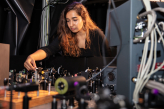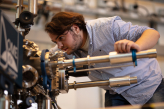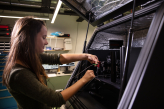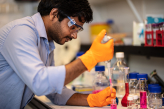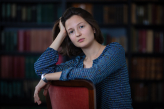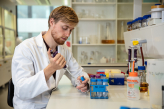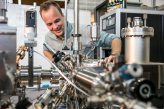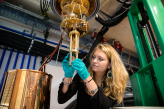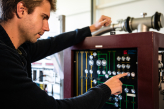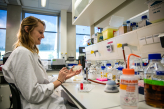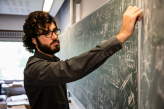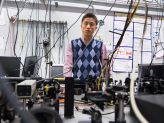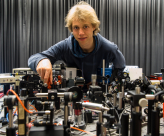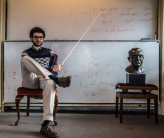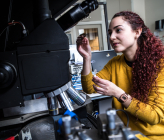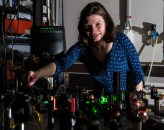My master project was concerned with probing excitons in two-dimensional semiconductors that strongly interact with the environment around them. During this time, I designed a cryostat that allowed injection of gas molecules directly on the surface of these materials and undertook experiments at cryogenic temperatures to explore the interactions of the out-of-plane defect bound states.
As luck would have it, I met a colleague who told me about the Casimir Open Days event. This turned out to be a great opportunity where I got an interview with my now PI. In my current project, I investigate non-trivial topological fields in two dimensional photonics crystals. With our near-field microscope I obtain amplitude, phase and polarization information to investigate light-matter interactions at the sub-wavelength limit. The project involves performing experiments, undertaking numerical simulations and fabricating novel devices with exciting properties.
Casimir research school provides a variety of courses ranging from electronics for physicists to entrepreneurship for budding entrepreneurs to even animated science. In addition to these courses, it provides the opportunity to interact with fellow colleagues within the scope of my current field as well as outside for novel collaborations.
